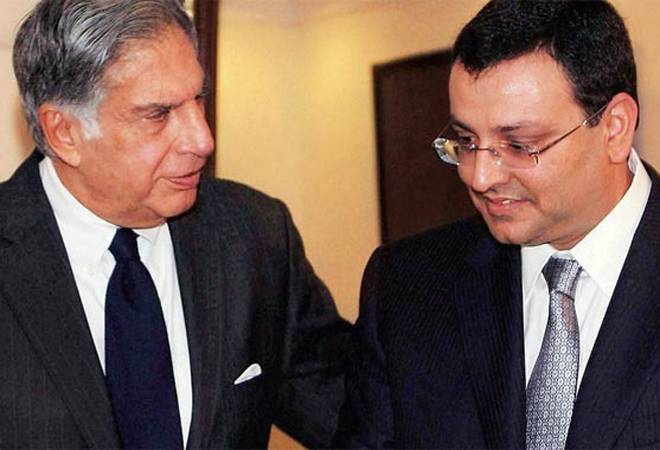This article is written by Ayushi Gupta, pursuing Diploma in M&A, Institutional Finance and Investment Laws (PE and VC transactions) from Lawsikho.
Introduction
The Tata-Cyrus Mistry feud is one of those corporate battles that rocked India’s leading business conglomerate. This legal spat definitely caught the eye-balls of many in the legal and business world. Spanning over a decade this battle was fought between businessman turned philanthropist, Mr. Ratan Naval Tata (“RNT”) and Mr. Cyrus Pallonji Mistry (“CPM”), scion of a wealthy business family. The judgment delivered by the Honorable Supreme Court on March 26 this year finally settled the dust over the ownership and control of the Tata Group. This piece does not seek to analyse the judgment of the Apex Court in detail. Rather, it is an attempt to analyze interesting and intertwined issues that may have a bearing on the governance of corporations in future.
The fallout dates back to the time when CPM was removed from the post of executive chairman of Tata Sons Private Limited (“Tata Sons”) and subsequently from the directorship of other companies, whose holding company was Tata Sons. To provide a background, the Tata Trusts holds a majority shareholding of 66% in Tata Sons while the Shapoorji Pallonji Group (“SP”), namely Cyrus Investments Private Limited and Sterling Investment Corporation Private Limited led by CPM held 18% in Tata Sons.
After his removal, CPM filed a petition under section 241, 242 read with 244 of the Companies Act, 2013 (“Act”) before the National Company Law Tribunal (“NCLT”) on the grounds of prejudice, oppression and mismanagement. NCLT passed an order in favour of Tata Sons stating that it was right in removing CPM from the position of executive chairman. It dismissed the petition holding that the de-minimis qualification stipulated under section 244(1)(a) is not satisfied to invoke Sections 241 and 242 of the Act. This is because the complainant companies owned only 2% (excluding preference shares) while the Act required at least 10% ownership stake in Tata Sons. CPM appealed to the National Company Law Appellate Tribunal (“NCLAT”) which reinstated CPM to his earlier position in the group. When the case came before the Honorable Supreme Court, it decided the issues in favour of the Tata Group.
The foremost issue that arises for consideration is if the removal of CPM counts as oppressive and prejudicial to the interests of other stakeholders. Section 241 of the Act lays down the onus that must be met by the complainant to satisfy the criteria for presenting the case of oppression and management. This includes (i) affairs of the company should be prejudicial to the interests of its members or public and (ii) circumstances should raise just and equitable grounds to wind up the company, although the petitioner should also satisfy the court that winding up would unfairly prejudice him or a class of shareholders. Both these conditions should be satisfied in order to get relief under the aforementioned section. In this context, section 241 provides a high burden of proof for the complainant.
This warrants scrutiny of Articles of Association (“AOA”) of Tata Sons, particularly Article 75. Article 75 entitled Tata Sons to purchase the shares of any shareholder at a price considered as a fair price. The Apex Court dismissed the argument made by CPM on the misuse of Article 75 thereby leading to oppressive or prejudicial conduct. It heavily relied on the fact that since CPM and his father were consenting parties to the amendments made to the AOA, the likelihood of using these articles as tools to prejudice the rights of minority shareholders could not be a ground for the challenge of the actions of Tata Sons. Furthermore, the Apex Court also stated that since Article 75 does not relate to actual conduct but the possibility of future conduct the challenge to Article 75 does not stand. The Apex Court pointed out the conduct relates to ‘past or present or continuous’. However, the conduct cannot be a distant past under the Act.
In this light, the issue of re-conversion of Tata Sons to a private limited company becomes relevant in the light of the transfer of shares. Given that a private company has certain restrictions on the free transferability of shares, Tata Sons was in a hurry to make a conversion to a private company as Article 75 cannot be valid for a public company. The timing of the conversion was at the stage when CPM had already filed an appeal before the NCLAT. Therefore, instead of complying with the Act, reliance was placed on circular dated September 2013, contending that Tata Sons comes under the ambit of a private company to be able to change its status with the consent of the Registrar of Companies (“ROC”). The manner and the timing of such conversion raise serious questions on Tata Sons as it attempted to camouflage its intentions within a legal framework.
On removal of CPM, emphasis was laid on his conduct which includes his leakage of Tata Sons information to the media and sharing of information to Income Tax Authorities. The Apex Court was of the view that his removal was inevitable on account of trust deficit and loss of confidence in him and not due to legacy issues. CPM’s contention of removing him as a premeditated move did not cut ice with the court. The Honorable Court observed that mere removal of CPM from the directorship can never be projected as a just and equitable clause for triggering Sections 241 and 242 of the Act. The Supreme Court also looked at the power of NCLAT to grant relief under section 242 and held that NCLAT should not inquire if the removal of a complainant is illegal. Instead, to grant the relief the removal must be carried out to oppress and prejudice the interests of members.
It is to be pointed out that NCLT dealt with every allegation of oppression and management and recorded its detailed findings. On the other hand, NCLAT did not examine all the allegations nor did it render any opinion on the findings of NCLT. NCLAT restricted its finding to core issues which include (i) Removal of CPM and (ii) Status of Private Company/Public Company of Tata Sons. Therefore, the Supreme Court concluded that NCLAT did not overturn the findings on the issues it did not deal with, thus it did not interfere with the issues already decided by NCLT.
Critical analysis
The judgment sets the tone and the precedent for potential corporate disputes that involve issues of oppression and mismanagement. In the present case, we noticed that the parties did not only share business interests over the course of 25 years but had a long history that was based on mutual trust and respect. Does this judgment settle the dust around the issues of corporate governance, transparency and management? Only time will tell.
The Apex Court took a strong position on a few issues favouring Tata Sons disregarding the facts surrounding the removal of CPM from his post. The removal of CPM without seeking any explanation due to loss of confidence is in contrast with the fact that his performance was applauded in the year 2016 by the nomination and remuneration committee. The removal, therefore, seems arbitrary but from corporate governance, standpoint cannot be questioned since the requisite majority of shareholders voted for CPM’s removal. This judgment makes oppression and mismanagement harder to establish and, therefore, significantly impacts the rights of minority shareholders.
Though the judgment has put an end to the long-running dispute between Tata Sons and CPM, the years of accusations, counter-accusations and mudslinging has certainly damaged the reputation of one of the most upstanding corporate houses in India. Interestingly, the judgment may serve as a caution on drafting the Articles of Association for a public and private company.
The Supreme Court judgment delivered by the bench presided over by Chief Justice S.A Bobde will make a significant mark in the history of corporate India. The Apex Court has left it to the parties to decide on the fair valuation stake of the company. Either both the parties can choose to resolve the issue amicably or there would be another messy legal battle awaiting them. CPM declaring an “all out war” against the Tata Sons to try to get back at them did not quite succeed.
The statements of Apex Court on Mistry’s breach of loyalty and setting fire to his own house speaks volumes about how the Apex Court was swayed by emotions and did not properly consider the merits of the case. The fact that the winding up of Tata Sons was disregarded in its entirety due to the fact that the majority of its stake is owned by Tata Trust which is engaged in philanthropic activities seems glaring.
CPM has filed a review petition in the Supreme Court seeking to review the impugned order. For a review petition to be admitted what is required is an error apparent on the face of the record. It remains to be seen whether the appointment of Justice N.V. Ramana, Chief Justice of India will impact the contours of this unfortunate corporate battle.
Students of Lawsikho courses regularly produce writing assignments and work on practical exercises as a part of their coursework and develop themselves in real-life practical skills.
LawSikho has created a telegram group for exchanging legal knowledge, referrals, and various opportunities. You can click on this link and join:
 Serato DJ Crack 2025Serato DJ PRO Crack
Serato DJ Crack 2025Serato DJ PRO Crack











 Allow notifications
Allow notifications


